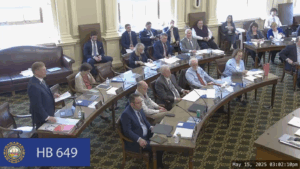We Need Your Help!
The NHLA is an all-volunteer organization, with a handful of volunteers shouldering all the work. Build your reputation as a Liberty Activist, not to mention expand Liberty, by volunteering!
The NHLA has modest operational expenses, most of our money goes towards the campaigns of Liberty candidates for the NH Legislature. We also have a charitable fund that helps local families in need. Please donate to help us continue this important work.








